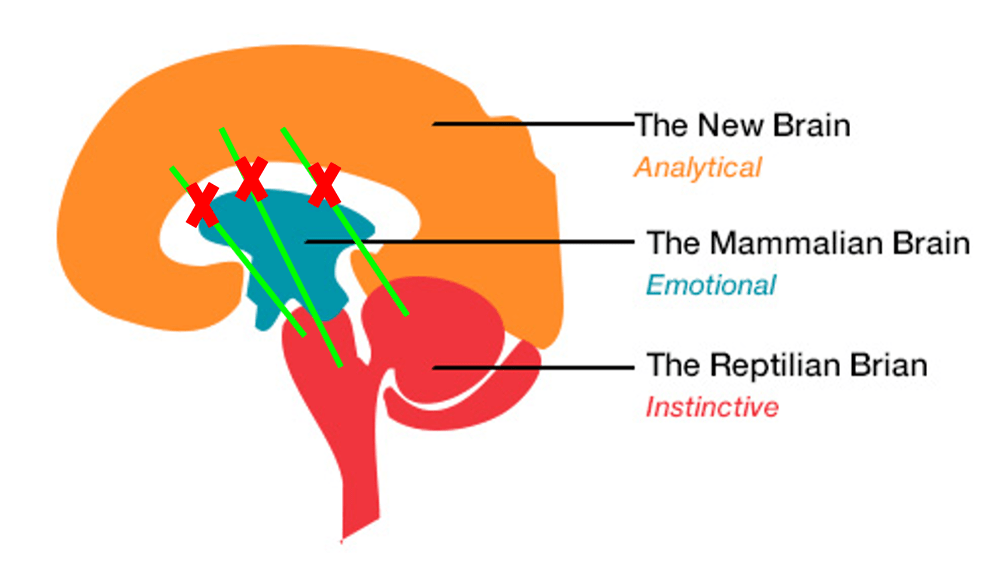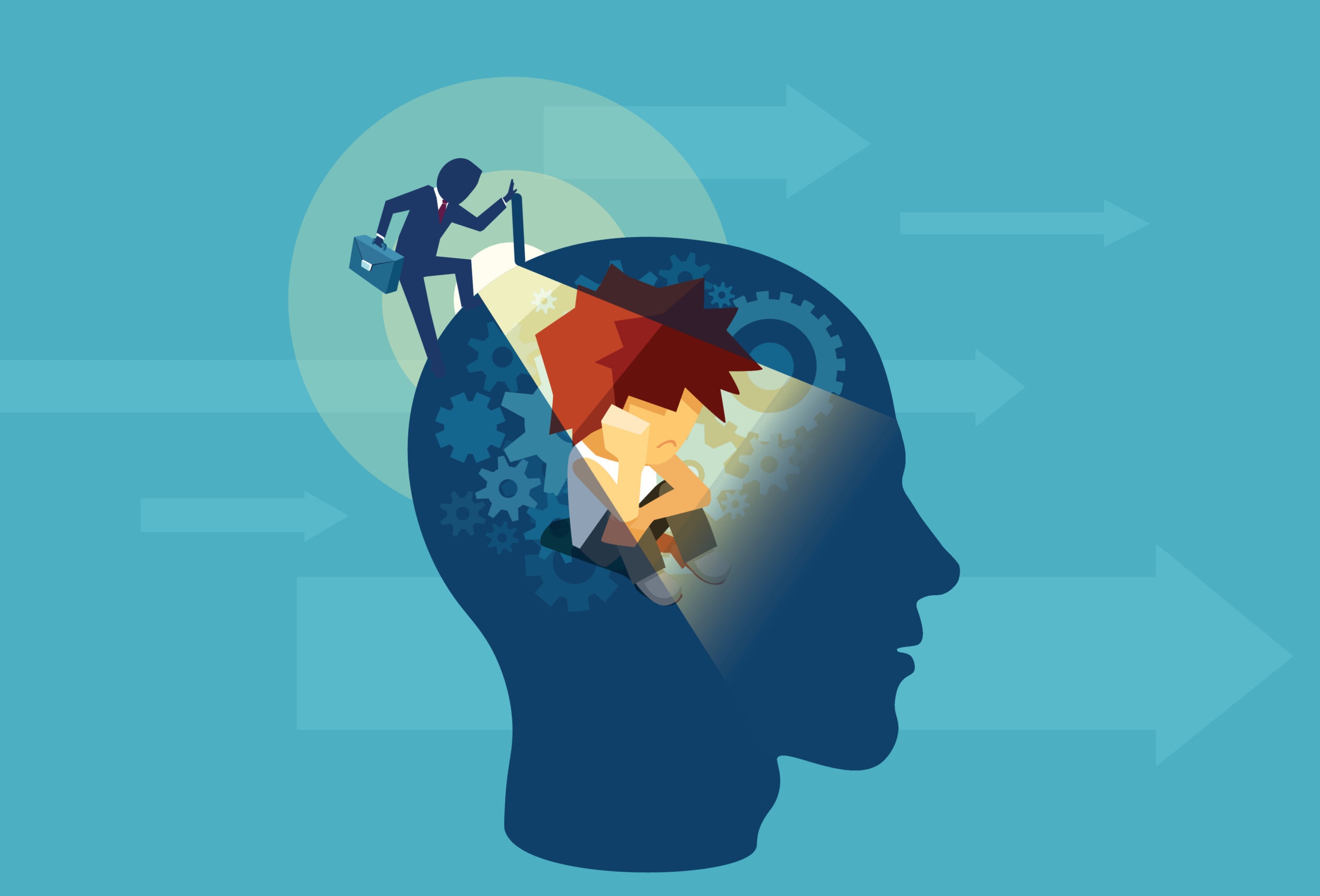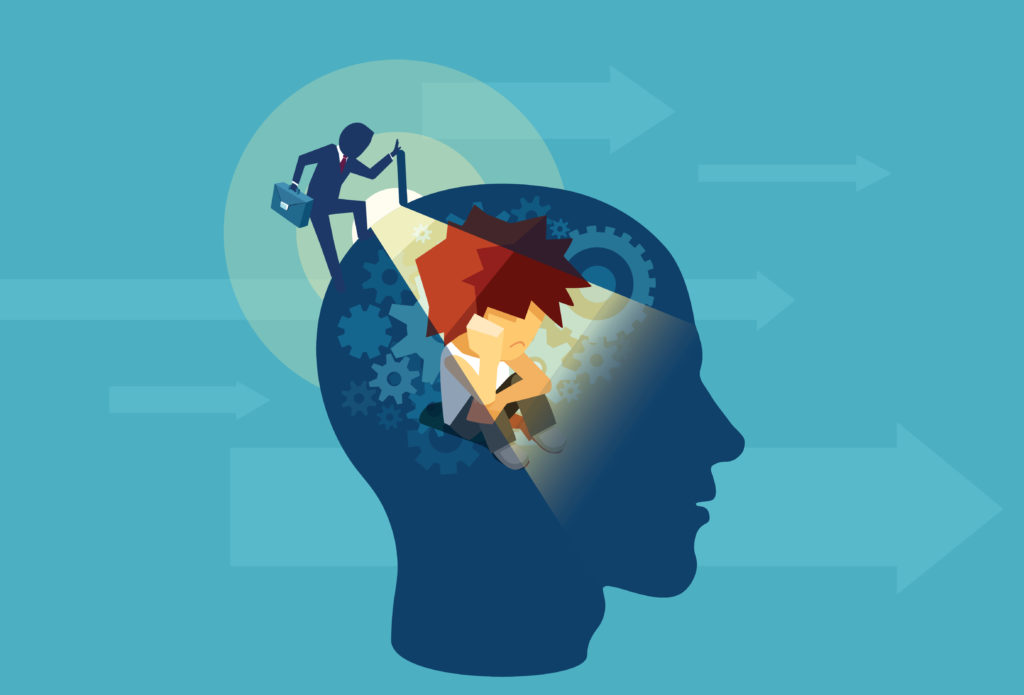In last week’s blog post (What Causes People to Possess Negative Mindsets?), I discussed how when we have negative mindsets, it is a signal that the wiring in our brain (particularly the wiring between our three major brain regions) is not properly integrated.
Our negative mindsets and this lack of integration generally comes about because of two primary factors:
- Prior life experience – which if we have negative mindsets, suggests that we may have some unresolved or untreated trauma residue
- Current culture – which if we have negative mindsets, suggests that the current culture we operate in may feel unsafe
Deep Dive Into Trauma & Its Effects
For this blog post, I want to dive into trauma and its effect on our mindsets and how we process and operate.
This is important because the more we understand trauma and its effects, the better we can understand (1) ourselves, and (2) how to shift our mindsets.
This content is the integration of my prior mindset learnings and my recent trauma learnings that have come primarily through the following sources:
- The Body Keeps the Score: Brain, Mind, and Body in the Healing of Trauma by Bessel Van Der Kolk
- Mindsight: The New Science of Personal Transformation by Daniel J. Siegel
- The Mindful Therapist by Daniel J. Siegel
- Emotionally Focused Couple Therapy with Trauma Survivors: Strengthening Attachment Bonds by Susan M. Johnson
This book was my favorite:
What is Trauma?
Let’s start at the top: What is trauma?
Trauma is the exposure to a stressor that evokes intense fear, helplessness and horror.

In Sue Johnson’s book, she says, trauma (these stressors) “irrevocably shapes the way a survivor defines the world and his or her self.”
Doesn’t the phrasing of how we define/see our world and self sound a lot like mindsets?
Big “T” Trauma and Little “t” Trauma
I think it is important to mention that traumatic stressors can vary greatly in terms of intensity and duration.
One way that people informally discuss this variation is in terms of “big T” trauma and “little t” trauma.
Some common examples of “big T” trauma include abuse, seeing someone else injured or killed, and neglect.
I specifically point out neglect because it isn’t always considered trauma because it is an act of omission instead of an act of commission. Yet, research has found that chronic neglect can be just as devastating as physical or sexual abuse.

“Small t” trauma are less intense stressors that still irrevocably changes how we see ourselves and/or the world.
For example, I spoke with a CFO the other day who said that having a business that he started up go under has prevented him from branching out and starting up another business. I might classify the experience of having a business fail as being a “little t” trauma, but I imagine in many cases it could even be a “big T” trauma.
An important thing to recognize is that 69% of people have been found to have experienced a traumatic stressor in their life (and this research was focusing more on “big T” trauma than “little t” trauma). The most common trauma that men experienced was through combat or witnessing death or injury. The most common trauma that women experienced was sexual assault.
What are the Common Effects of Trauma?
Described broadly, during and after trauma, the person’s mind and body become intensely focused on survival and safety. This isn’t bad in and of itself, but it does have some debilitating side effects.
To fully understand this, I find it helpful to explore the effect that trauma has on us at a neurological level.
Neurological Foundation
We have three major brain regions:
- Basal Ganglia (Reptilian Brain) – In charge of body sensations and impulses. It is what rapidly gets us into fight/flight/freeze mode if it senses or interprets danger.
- Limbic System (Mammalian Brain) – It is in charge of emotions, feelings, and implicit memory, which greatly inform and influence decisions.
- Neocortex (Human Brain) – It is in charge of thought, verbal expression, and rationality. Everything below this brain region is largely instinctual and reactive. This is the part of our brain that allows for rationality and responsiveness.
Ideally, all three of these regions are integrated and work well together.
Effect of Trauma
But, when someone experiences trauma, the brain becomes disintegrated and the reptilian and mammalian regions of the brain operate on overdrive, becoming extremely sensitive to danger and fear, and their human brain (neocortex) often gets left out of the individual’s processing.

This disintegration has the following side effects that occur in essentially a chain reaction (these are considered the primary effects of trauma):

- Numbing – Disconnecting their mind from the feelings in their body
- Loss of ability to connect with self (i.e., inability to introspect and be self-aware)
- When we have a hard time connecting with ourselves, we also:
- Have difficulty loving one’s own body, mind, and soul
- Become limited in our ability to be other-aware, engage in perspective taking, and overall, connect with others
- Have difficulty thinking about, planning for (i.e., goal setting), and working toward a purpose and brighter future
One way to summarize these effects is: Trauma dampens our ability to be emotionally intelligent.
And, what makes moving on and healing from trauma difficult is that one’s natural defense mechanisms that are on high alert to keep them safe and secure limits their ability to engage in new experiences and thought processes that might help revise and improve their worldview, and relationship with self and others.
Effect of Trauma on Mindsets

When we recognize that mindsets are the long-range neural connections that connect and integrates the three major regions of our brain, and trauma causes these long-range neural connections to be adjusted and essentially stunted, it becomes easy to see that trauma is a primary cause of negative mindsets, which can be seen below with their associative desires (and survival mechanisms):
- Fixed = Desire to look good (protect image)
- Closed = Desire to be right (be in control)
- Prevention = Desire to avoid problems (avoid discomfort)
- Inward = Desire to get ahead (need to be seen as being important)
What Next?
If you want to determine the degree to which you possess any of these negative mindsets, take this FREE Personal Mindset Assessment.
If you have any of the negative mindsets, I may be worth considering and investigating if any of your negative mindsets are rooted in “big T” or “little t” trauma.
Regardless, one of the benefits of considering the relationship between mindsets and trauma is that all of the treatments for trauma are designed to create greater integration within our mind, which results in the simultaneous development of positive mindsets.
Thus, in the next article, I will be discussing what science and practice suggests is the best way to establish better neural integration and more positive mindsets.












4 Responses
This was informational and I agree and disagree with parts. The part I disagree with is that post trauma a mindset is negative. On the contrary, it’s positive when it strengthens resilience, makes one stronger and grows, not stunts. Personally, I can’t imagine myself so called healed from an incident in my twenties so that I could be different than I am now with lifestyle I choose now. The trauma actually awakened me and made me smarter and I feel healed and not hindered by it. I proceed, and this is related to love relationships, with awareness more of who I am, a kind and trusting person. Being aware of my naive personality trait, because of that trauma, helps me be more conscious that naive is a default of mine so I set other settings, so to speak, to protect myself, from myself. Happy Today, Happy Everyday!
Thank you for sharing, and great perspective and reminder! And, it seems to suggest that your mind was well integrated prior to your traumatic experience, which allowed you to grow from your experience instead of wither.
Great article Ryan. I’m looking forward to the next article on how to integrate the neural regions. I also am a fan of Bessel Van Der Klok. I find it really interesting how you have brought the impact of trauma and cultural environments into the discussion of mindset. I am of the believe that our mindsets may have tendencies but they aren’t necessarily fixed – it’s the growth mindset part of me. We may exhibit a different mindset in a certain situation, about a certain topic and with different people. You have brought a new dimension to that believe for me. It may also be the impact of a trauma trigger. I can see that this knowledge can possibly help with developing new responses to old triggers. We can work on strengthening the positive mindsets we hold when not triggered. Thanks for the insights in this post!
Thank you for sharing Lori. And glad you are finding it helpful. I am posting the next article as I type this. Let me know if you find it helpful.